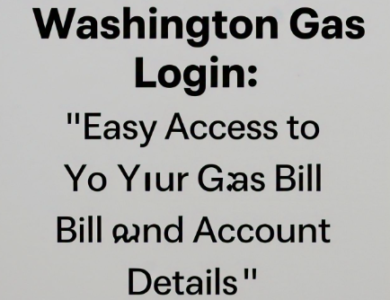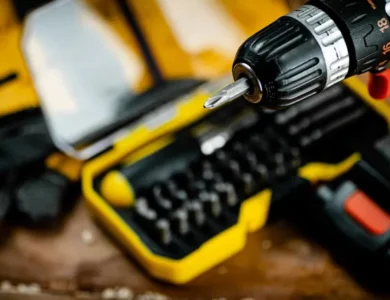
Digital currency is changing how we use money every day. Digital currency means money you can use only on computers or phones, not paper or coins. This new kind of money works in many ways, and many people around the world are starting to use it more and more. You might have heard about bitcoin or other kinds of digital currency. These are not like the cash in your pocket but are just as real and can buy things or be saved for later. Learning about digital currency helps us understand the future of money and how it can make life easier.
There are different types of digital currency, each with its own special features. Some digital currencies, like bitcoin, are not controlled by any bank or government. Others, like digital versions of regular money, are controlled by governments and banks. Digital currency is fast, and you can send it anywhere in the world using the internet. It can be safer and cheaper than using normal money. But digital currency can also change value a lot, and some types can be hard to understand. Knowing about digital currency helps people use it safely and smartly.
Table of Contents
What Is Digital Currency and How Does It Work?
Digital currency is money that you can only use on the internet or electronic devices. It does not exist as coins or paper bills like the money you know. Instead, it lives in computers and can be sent from one person to another through special online systems. This type of money uses technology to keep transactions safe and private. When you send or receive digital currency, a computer checks to make sure the exchange is real and correct. This process is called verification. Because of this, digital currency can be sent quickly across the world without using banks or middlemen. It works using codes and special networks that help people trust the system.
Different Types of Digital Currency Explained
There are several types of digital currency, and each works in a different way. The first type is called cryptocurrency, like Bitcoin and Ethereum, which uses a special system called blockchain to keep track of transactions without needing a bank. Another type is Central Bank Digital Currency (CBDC), which is money issued by a country’s government but only in digital form. Then there are virtual currencies, which people use in online games or virtual worlds. Lastly, stablecoins are digital currencies that try to keep their value steady by linking to real money or assets. Each type has its own uses and rules, and people choose the one that fits their needs best.
How Digital Currency Is Changing the Way We Pay
Digital currency is making payments easier and faster. Before, paying for things meant using cash, credit cards, or banks. Now, with digital currency, you can send money instantly to anyone in the world with just a few clicks. This is helpful when shopping online or sending money to family far away. Digital currency also lowers the cost of payments because it skips the usual bank fees. Many stores and websites now accept digital currency, making it popular for buying goods and services. This new way of paying is growing quickly and is changing how people think about money and shopping.
Advantages of Using Digital Currency Every Day
Using digital currency every day comes with many benefits. First, it is fast — you don’t have to wait for a bank to process your payment. Second, it can be safer because transactions are recorded and hard to change. Third, digital currency allows people without bank accounts to join the money system. It can be used anywhere with internet access, making it great for travel and online shopping. Also, digital currency is easy to carry since it is all stored on your phone or computer. Because of these advantages, more people are starting to use digital currency in their daily lives.
The Risks and Challenges of Digital Currency
Even though digital currency has many good points, it also has risks and challenges. One problem is that the value of some digital currencies can change very quickly, which can make them risky to own. Another challenge is that not everyone understands how digital currency works, so they might make mistakes or get tricked. Also, digital currencies are not always protected by government rules like regular money. This can lead to scams or loss of money if someone hacks your digital wallet. Finally, some people worry about privacy because digital currency transactions can be tracked. It’s important to learn and be careful when using digital currency.
How Governments Use Digital Currency Today
Many governments around the world are now creating their own digital currencies called Central Bank Digital Currencies (CBDCs). These are like regular money but only digital. Governments use CBDCs to make payments faster and safer for everyone. They can also control the money supply better and help fight illegal activities. Some countries are testing or already using CBDCs for things like paying bills or giving financial help to citizens. Governments want to keep up with technology and make sure their money stays useful in the digital age. This is why digital currency is becoming a part of many countries’ financial plans.
Why Digital Currency Is Faster Than Cash
Digital currency is faster than cash because it moves through the internet instantly. When you pay with cash, you have to hand it to someone or wait for banks to clear checks or transfers. This can take time and effort. But digital currency uses computers and special networks that confirm transactions quickly, sometimes in just seconds. This speed helps businesses and people save time when sending or receiving money. You don’t have to wait for the next day or for banks to open. That is why many people like using digital currency for fast payments.
Digital Currency and Online Shopping: What You Need to Know
Digital currency makes online shopping easier and safer. When you buy things online, you usually use a card or bank transfer, but digital currency is another option. Many websites now accept digital currency payments because they are quick and have lower fees. Using digital currency online can protect your personal information better than credit cards. However, not all stores accept digital currency yet, so it’s good to check before shopping. Also, the price of digital currency can change, so the amount you pay might be different later. Knowing these facts helps you shop smart using digital currency.
How Digital Currency Can Help People Without Banks
Many people around the world don’t have bank accounts, which makes it hard to save money or send it to others. Digital currency can help these people because it only needs a phone or internet to use. They can store money in digital wallets and send it to family or pay for things without needing a bank. This makes digital currency a powerful tool for financial inclusion. It helps people in remote places or without easy access to banks join the economy. As digital currency becomes more popular, it can improve lives by giving more people control over their money.
The Future of Digital Currency: What to Expect
The future of digital currency looks bright and exciting. More countries will create their own digital money, and more stores will accept it for payment. Technology will improve, making digital currency safer and easier to use for everyone. We may see new kinds of digital money that combine the best features of today’s currencies. People might use digital currency for everyday things like buying groceries or paying for bus rides. However, new rules and laws may also come to keep users safe. Learning about digital currency now helps us prepare for a future where digital money is a normal part of life.
Conclusion
Digital currency is changing how we use money in many ways. It makes paying and sending money faster, easier, and often cheaper. Different types of digital currency work in different ways, so it is important to know how each one works. As digital currency grows, more people will use it every day.
It is also important to be careful when using digital currency because it can have risks like price changes or scams. By learning and using digital currency wisely, we can enjoy its many benefits. The future of money is digital, and understanding it helps us be ready for new ways to pay and save.
FAQs
Q: What is digital currency?
A: Digital currency is money used only online or in electronic form, not as cash or coins.
Q: Are cryptocurrencies the same as digital currency?
A: Cryptocurrencies are one type of digital currency that uses special technology for safety.
Q: Can I use digital currency to buy things?
A: Yes, many stores and websites accept digital currency for payments.
Q: Is digital currency safe?
A: Digital currency can be safe but also has risks like price changes and hacking.
Q: Do governments control digital currency?
A: Some digital currencies are controlled by governments, like Central Bank Digital Currencies (CBDCs), but others are not.



